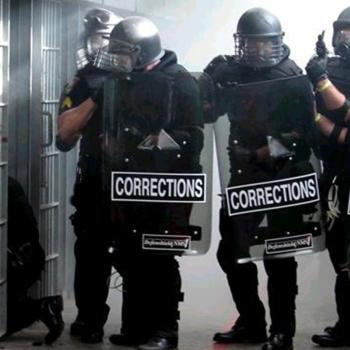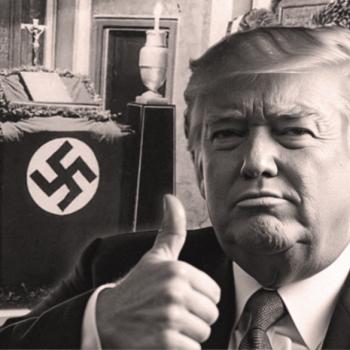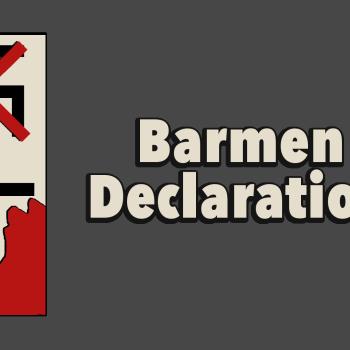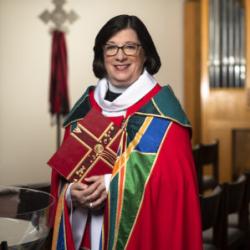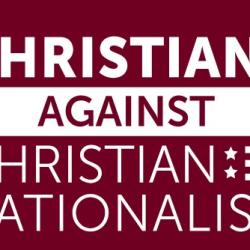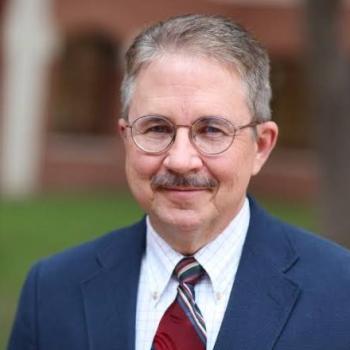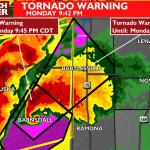Measuring Christian Nationalism, Parts 3,4: Church-State Separation?

We are measuring Christian nationalism because it’s important. And because we urgently need to get a realistic handle on what is happening. Here in this post we ask about church-state separation? And we ask about religious symbols in public places? These matters are both serious and pressing. “Christian nationalism is neither harmless, nor fringe. It’s in our churches; and it wants the power it feels has been unjustly stolen away” (Whitehead & Perry, 2022, p. viii).
In recent posts we’ve measured American Christian Nationalism (ACN) by looking at the declaration of America as a Christian nation and government promotion of Christian values. Now we ask: what do ACNers believe about church-state separation and religious symbols in public places? Let’s measure.
3 Church-State separation
4 Religious symbols in public places
-
“The federal government should enforce strict church-state separation.”
Roman Catholics have no horse running in the church-state race. For the most part, at least. Officially, church-state separation with cooperation might be the best way to identify the Vatican position.
“The Church and the political community in their own fields are autonomous and independent from each other. Yet both, under different titles, are devoted to the personal and social vocation of the same men. The more that both foster sounder cooperation between themselves with due consideration for the circumstances of time and place, the more effective will their service be exercised for the good of all” (Vatican, Gaudium et Spes 1965, §76).
Now, let’s turn to American Christian nationalists and what they say about themselves. Curiously, we’ll see that the most vigorous defenders of church-state separation are the anti-ACNers.
ACN. In his The Case for Christian Nationalism, Wolfe distinguishes church and state, though his version of separation might not be strict. “Civil magistracy and spiritual ministry are separate but complementary, and they are independent with regard to office but not opposed” (Wolfe, 2023, p. 78). Inoccuous, but clear.

ACN. In an interview with Tucker Carlson, ACN Pastor Doug Wilson of Moscow, Idaho, declares that he wants religious liberty. “I trust the Christians to take better care of the secularists than I trust the secularists to take care of the Christians.” Does ACN require forced conversion? “No, it does not.” Rather, ACN means an “expansion of the right of non-Christians.” On the one hand, this ACNer priveleges the Christian religion. On the other hand, he also defends religious liberty in the form of church-state separation.
CACN. CACNers tell us that “Christian nationalism demands Christianity be privileged by the State.” In contrast, CACNers tell us that CACN holds that “government should not prefer one religion or religion over nonreligion.” This according to Amanda Tyler, who pleads for a pluralistic society wherein the government refrains from promoting or discouraging any religious faith. This is just the opposite of what one would expect. Here, it is CACN who claims to defend church-state separation. Now, which is it? Is church-state separation a plank in the ACN platform or the CACN platform? Well, it appears to be both.
In Jesus and John Wayne, Kristin DuMez complains that evangelicals in general say they support religious freedom but actually do not mean it. “Religious freedom did not apply equally to all faith traditions; their defense of religious freedom was linked to their defense of ‘Christian America'”(DuMez, 2020, 240).
CACN. Let’s go back to 1939. “The American Baptist Bill of Rights” was unanimously approved at the 1939 annual sessions of the Southern Baptist Convention, the Northern Baptist Convention and the National Baptist Convention. It defends separation of church and state.
“Believing religious liberty to be not only an inalienable human right, but indispensable to human welfare, a Baptist must exercise himself to the utmost maintenance of absolute religious liberty for his Jewish neighbor, his Catholic neighbor, his Protestant neighbor, and for everybody else.”
Now, let’s get contemporary again. Today’s Baptists remind us that religious liberty is supported by CACN, but not by ACN. If this is factually true, then we can see a line separating ACNers from evangelicals. See: Chris Gehrz, “Baptists (and Other Christians) Against Christian Nationalism.”
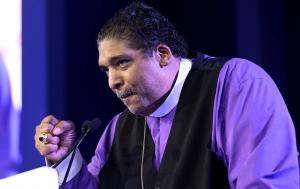
CACN. “We are facing existential threats against church-state separation and against our democracy,” warns Rachel Laser, a Jew and President of Americans United for Separation of church and State. Anthea Butler, a religious studies professor at the University of Pennsylvania, sounds the air raid sirens against theocracy.
“What I’m here to say about Christian Nationalism is this: It is probably one of the most dangerous things that has happened in this country….What they want is a theocracy….Church and state separation is going to be obliterated.”
Rob Boston, writing for Americans United for Separation of Church and State, exclaims, “Surprise! Some of Christian nationalists’ harshest critics are Christian leaders.” Boston reports on the April 2024 New Haven Declaration of Moral & Spiritual Issues of the 2024 Presidential Election produced by Yale University’s Center for Public Theology and Public Policy. Among the signatories is William J. Barber, Founding Director. Here’s what they said at Yale.
“We repent of not doing more to preach and teach against this misuse of our faith, and we pledge to proclaim in word and deed a public theology that is good news for all people.”
EV. Evangelical Paul Miller supports religious liberty against ACN. “Christian nationalism tends to treat other Americans as second-class citizens. If it were fully implemented, it would not respect the full religious liberty of all Americans.” Again, it is CACN who stresses church-state separation.
EV. Soujourner’s former editor, Jim Wallis, in an interview with Paul Brandeis Rauschenbush, says WACN is no longer the religion of Jesus who emphasizes neighbor-love directed toward those who are different from us. Wallis envisions a multi-racial and even a multi-religious democracy.
SACN. “A growing number of more secular Americans… maintain that both Christianity and America’s public institutions are at their best when the two function like considerate neighbors — friendly in their interactions but always respecting the boundaries between them” (Whitehead & Perry, 2022, p. 3). Here it’s SACN supporting separation of church and state.
SACN. Gorski and Perry thank the ethos of religious liberty in America because it promotes divisive pluralism. And we need the divisiveness of pluralism to defend democracy against the rise of a dictator.
“Religious freedom has created multiple and competing religious bodies with divergent views on politics. In sum, there is just not one elite in America, nor just one key city or community, but many of all three. And these elites, cities, and communities have conflicting interests and ideologies. All of which creates another formidable obstacle to the aspiring demagogue” (Gorski & Perry, 2022, p. 124).
Note: for SACNers Gorski and Perry, divisive pluralism is effective at preventing the priveleging of one religion. Fissiparous pluralism will prevent religious unity and, thereby, prevent political unity. In an epoch where divisiveness is ripping our nation apart, we find SACNers welcoming divisiveness.
-
“The federal government should allow the display of religious symbols in public spaces.”

ACN. Not only should the federal government passively allow the display of religious symbols — Christmas Nativity Scenes? — in public places, according to Wolfe, but the government should actively “institute religious days that, though not holy in themselves or necessary for the true worship of God, become relatively holy on account of their relationship to holy things. These are national celebrations or lamentations that conduce to national solidarity, a national Christian self-conception, and spiritual good unto heavenly life (Wolfe, 2023, p. 32). In my stochastic survey of ACN primary sources, I did not perceive that public religious displays such as nativity scenes are deemed essential to ACN.
BCN. Black Christian Nationalists, to my reading, do not ask the government to display religious symbols. Rather, BCNers proliferate their own buildings and shrines, especially carrying the theme of the Black Madonna. After all, BCNers believe that historically Jesus’ genes came from black African Jews.
“At the Shrine of the Black Madonna, we recognize and admit the betrayal of the Black Church even as we struggle to redeem and transform it for the survival struggle which lies ahead….We know that Mary and Joseph and Jesus were Black. So, Christianity is founded upon the life and teachings of a Black Messiah. As important as the fact that Israel and Jesus were Black, is the fact that Jesus was a revolutionary leader engaged in a liberation struggle against the white gentile world….Shrines of the Black Madonna seek to bring the Black Church back to its historic roots through the Black Christian Nationalist Church established in March of 1967” (Cleage, 1972) (McIntosh, 2021, pp. 15, Cleague’s words of 1972).
CACN. Appearing on the Mark Steiner show, “The dangerous rise of Christian Nationalism,” theologian and activist Liz Harris ecnourages CACNers to fight politically to end systemic racism and establish justice for the poor. Such Anti-ACNers silently side with BCNers on racial justice.
CACN. Shan Norwood, a Patheos columnist, recommends that CACNers avoid taking the political road to political dominance.
“The Kingdom of God is not external but internal, marked by hope, patience and love. We are not called to become a political force to turn the nation around but a witness in the places we dwell as we flourish where we are planted and do good for those around us, knowing that the position of victory lies at the foot of the cross. We are to seek the city’s welfare, knowing God is working all things new.”
In summary, to date I’ve found relatively little passion among ACNers for religious displays on government property.
Jesus, John Wayne, and a Non-Sequitur

Let me pause to add some thoughts about the popular treatment of Post-World War II evangelical Christianity in America, Jesus and John Wayne, by Kristin Kobes DuMez. Theme of this book is clear: the raison d’etre defining evangelical Christianity is its idolatrous commitment to masculinity.
“Testerone made men dangerous, but it also made them heroes. Within their own churches and organizations, evangelicals had elevated and revered men who exhibited the same traits of rugged and even ruthless leadership that President Trump now paraded on a national stage”(DuMez, 2020, 272). “Evangelical masculinity serves as the foundation of a God-and-country Christian nationalism”(DuMez, 2020, 301).
Under the guise of supporting family values, our hypocritical evangelical friends suppress social support for women’s rights, dignity for LGBTQ+ persons, sissies in the armed forces, and racial equality. This, contends DuMez, means that evangelicalism in large part is the equivalent of American Christian Nationalism. This, I contend, is a non-sequitur.
Now, colleagues whom I respect do not interpret DuMez the way I do. However, let me tell you why it looks this way for me with an example from how DuMez argues in her book.
“In the wake of September 11, Islam replaced communism as the enemy of America and all that was good, at least in the world of conservative evangelicalism….Once again, the line between good and evil was clearly drawn” (DuMez 2020, 219).
To my reading, this seems to be at least partially accurate. Many Americans might have entertained thoughts of reprisal against the Muslims families down the street.
But, then DuMez exaggerates to give a false impression. See what she says on the same page about then President George Bush. President Bush “warned Americans that ‘this crusade, this war on terrorism, is going to take a while’.”
Note how Bush spoke of a “crusade” against “terrorism,” not against Islam. For those who were awake during this anxious period, we remember President Bush visiting local mosques and speaking to Islamic Americans. “We respect your religion,” he said repeatedly. America is not at war with Islam. It is at war with terrorism. The president’s words were intended to assure Muslims of their safety and to discourage any spontaneous reprisals of some Americans against other Americans. So, I ask: why does DuMez leave this out? Why does she want to leave us with the misleading impression that President Bush and his army of evangelicals had sworn to go to war against Islam? What could be DuMez’s motive here?
Thank goodness DuMez concedes that “not all evangelicals jumped on the anti-Muslim bandwagon” (DuMez 2020, 226). Whew! However, even with this, she feels uanble to concede that evangelical Christianity is a dappled collection of differing opinions. Watch her sleight of hand. After reporting from a 2007 survey that “sixty-two percent…[of] white evangelical Protestants…agreed that torture could be justified ‘often’ or ‘sometimes,” DuMez concludes: “The widespread embrace of a militant Christian nationalism would have far-reaching consequences in the age of terror” (DuMez 2020). Yeow!
In my judgment, this is a non-sequitur. The survey asked about approval of torture pursued by the Bush administration in Iraq. It did not ask about military actions against Muslims. And at that, the number is less than two-thirds. Not every evangelical approves of torture. The jump from this interesting piece of data to full fledged Christian nationalism, to my reading, is unwarranted. Again, I ask: what is DuMez’s motive for painting all evangelicals with the Christian nationalist brush?
David French writing for the New York Times has a more dappled and nuanced take.
“Not all evangelicals are white and evangelicals of color vote substantially differently from their white brothers and sisters. Evangelicals of color are far more likely to vote Democratic, and their positions on many issues are more closely aligned with the American political mainstream.”
In this series on Christian nationalism, one point I repeatedly press is this: yes, indeed, ACN exists. But, for reasons I find difficult to grasp, progressive Christians and ex-evangelical Christians are scapegoating the entire evangelical tradition by equating this tradition with ACN and sometimes even WACN. Why?
The End of Evangelical Christianity?
Our evangelical friends will be quick to admit that evangelicalism is in dissaray. Some even say, “evangelicalism is over.” Public theologian Bo Sanders announces that “evangelicalism is over.” Why? Is it because evangelicals support the MAGA-Moscow wing of the Republican Party? Our progressive friends would like to think so. No, says Sanders. That’s not the reason. What, then, is the problem? Answer: there does not exist an evangelical catechism. To say it another way, evangelicals are not confessional. Without a confessional catechism to define it, evangelicalism is merely a “social imaginery,” merely an agglomeration of persons who identify with evangelicalism but for vague reasons. Evangelicalism was never a reality in the first place, contends Sanders. That’s the problem. We cannot blame Trump. Sigh.
Preclusion
Testimony from witnesses strongly suggests that religious liberty in the form of church-state separation is supported by the ACN agenda. More importantly, CACNers and SACNers vigorously defend separation of church and state in order to protect America from the looming threat of ACN theocracy. Are you confused yet?
Frankly, I had expected government sponsored displays of nativity scenes along with menorahs to provide a rallying call for ACNers. But ACNers appear to be much more “oh hum” than I had forecsted.
PT 3233 Measuring Christian Nationalism, Parts 3,4: Church-State Separation?
PT 3200 Christian Nationalism Resources
PT 3230 Measuring Christian Nationalism, Part 0
PT 3231 Measuring Christian Nationalism, Part 1: A Christian nation?
PT 3232 Measuring Christian Nationalism, Part 2: Christian values?
PT 3233 Measuring Christian Nationalism, Parts 3,4: Church-State Separation?
PT 3235 Measuring Christian Nationalism, Parts 5,6
PT 3237 Gender and Race in Christian Nationalism, Parts 7,8
PT 3238 Roger Olson on Christian Nationalism
▓

For Patheos, Ted Peters posts articles and notices in the field of Public Theology. He is a Lutheran pastor and emeritus professor at the Graduate Theological Union. He co-edits the journal, Theology and Science, with Robert John Russell on behalf of the Center for Theology and the Natural Sciences, in Berkeley, California, USA. His single volume systematic theology, God—The World’s Future, is now in the 3rd edition. He has also authored God as Trinity plus Sin: Radical Evil in Soul and Society as well as Sin Boldly: Justifying Faith for Fragile and Broken Souls. See his website: TedsTimelyTake.com.
▓
References
Alberta, T. (2023). The Kingdom, the Power, and the Glory: American Evangelicals in an Age of Extremism. New York: Harper.
Butler, A. (2021). White Evangelical Racism. Chapel Hill NC: The University of North Carolina Press.
Cleage, A. (1972). Black Christian Nationalism: New Directions for the Black Church. New York: William Morrow.
Cooper-White, P. (2021). The Psychology of Christian Nationalism: Why People Are Drawn In and How to Talk Across the Divide. Minneapolis MN: Fortress Press.
Denker, A. (2022). Red State Christians: Understanding the Voters Who Elected Donald Trump. Minneapolis MN: Fortress.
DuMez, K. K. (2020). Jesus and John Wayne: How White Evangelicals Corrupted a Faith and Fractured a Nation. New York: Norton.
Gorski, P., & Perry, S. (2022). The Flag and the Cross: Christian Nationalism and the Threat to American Democracy. Oxford: Oxford University Press.
McIntosh, S. (2021). Memoirs of a Black Christian Nationalist: Seeds of Liberation. New York: Merill Publishing.
Peters, T. (1978). Futures–Human and Divine. Louisville KY: Westminster John Knox.
Peters, T. (2023). The Voice of Public Theology. Adelaide: ATF.
Whitehead, A., & Perry, S. (2022). Taking Back America for God: Christian Nationalism in the United States (2nd ed.). Oxford: Oxford University Press.
Wolfe, S. (2023). The Case for Christian Nationalism. Moscow ID: Canon Press.






